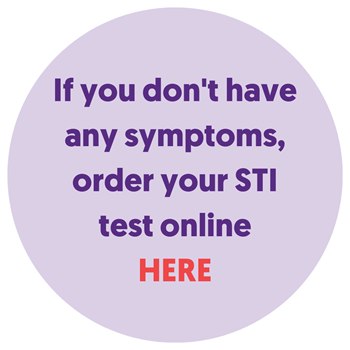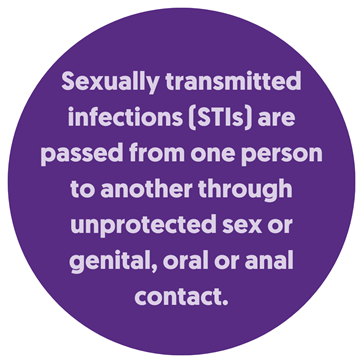Syphilis is a bacterial infection that in the early stages causes a painless, but highly infectious, sore on your genitals. The sore can last up to six weeks before disappearing.
Secondary symptoms such as a rash and a flu-like illness may then develop. These may disappear within a few weeks, after which you'll have no symptoms.
The late (tertiary) stage of syphilis usually occurs after many years, and can cause serious conditions such as heart problems, paralysis and blindness.
The symptoms of syphilis can be difficult to recognize. A simple blood test can be used to diagnose syphilis. The condition can be treated with antibiotics, usually penicillin injections. When syphilis is treated properly, the later stages can be prevented.
More information about Syphilis can be found here.










